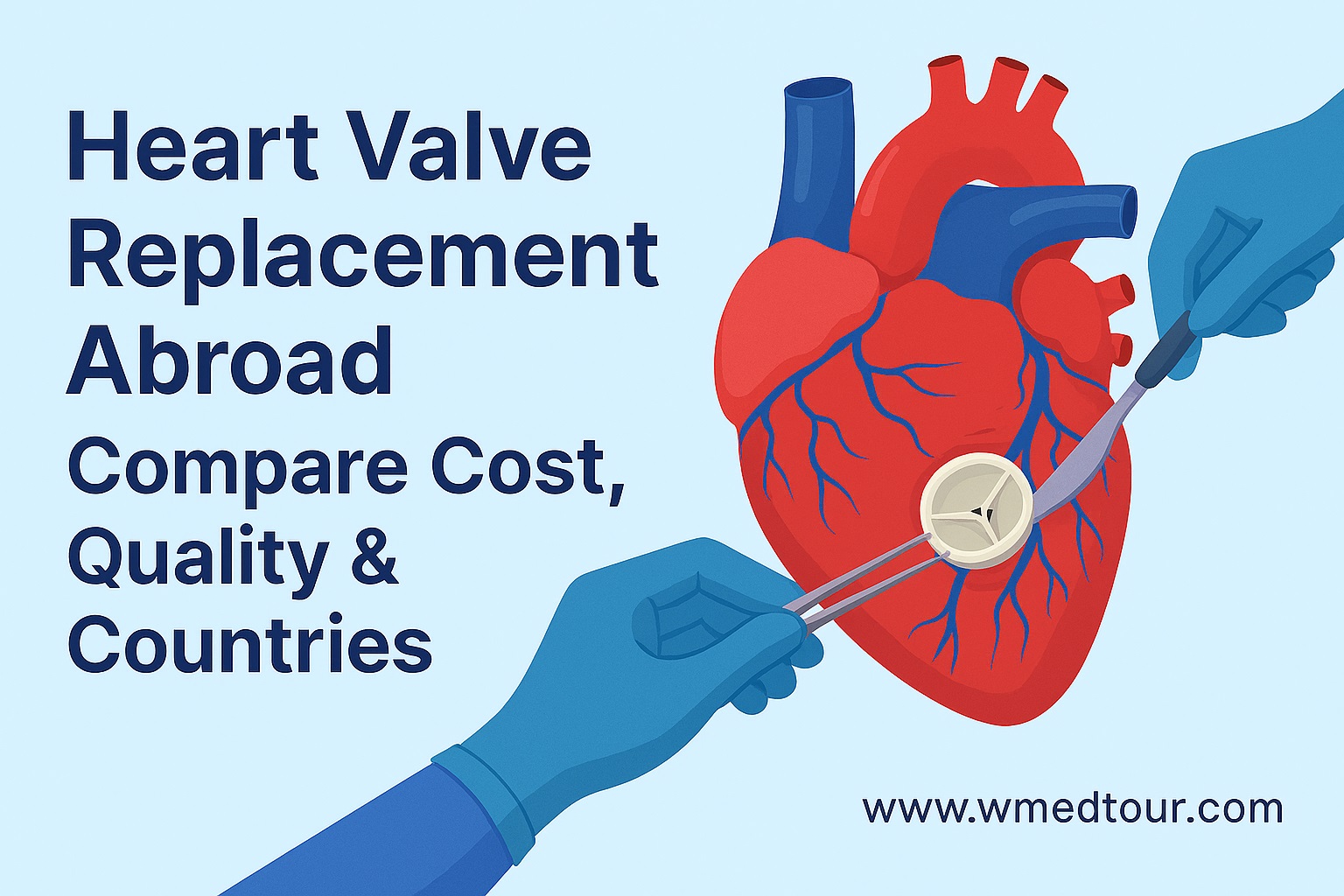Heart Bypass Surgery Abroad 2025: A Complete Guide
Your definitive resource for high-quality, affordable CABG surgery worldwide.
Heart bypass surgery, or Coronary Artery Bypass Grafting (CABG), is a well-established and life-saving procedure. Therefore, for many patients around the world, seeking **heart bypass surgery abroad** has become an attractive option. Indeed, medical tourism for this kind of surgery offers an opportunity to access world-class care at a fraction of the cost found in Western countries. Consequently, destinations such as Turkey, India, and Iran have emerged as leaders in providing advanced cardiac care. As a result, this comprehensive guide will walk you through the process, from understanding the procedure to exploring the best global options and ensuring a smooth recovery. Furthermore, this guide will provide you with all the essential information you need to make an informed decision about your heart health journey in 2025.
Understanding Your Heart Bypass Surgery Abroad
Coronary Artery Bypass Grafting is a surgical procedure designed to improve blood flow to the heart. For this reason, it is especially important when coronary arteries are blocked or narrowed by plaque buildup, a condition known as coronary artery disease. The surgeon creates a new path for blood to flow around the blockage, which is achieved by using a healthy blood vessel, or graft, taken from another part of the body. This rerouting, in fact, restores vital oxygen and nutrients to the heart muscle. Consequently, this can significantly reduce symptoms like chest pain (angina) and shortness of breath, while also lowering the risk of a heart attack. There are several types of CABG procedures; for example, a single, double, or triple bypass, depending on the number of blocked arteries. Ultimately, the choice of procedure is based on the severity of the patient’s condition.
Types of CABG Procedures
Traditionally, open-heart surgery is performed for CABG, which involves a large incision in the chest. However, modern medicine now offers a variety of less invasive techniques. For instance, minimally invasive coronary artery bypass (MIDCAB) is performed through smaller incisions and does not require a large chest opening. As a result, this method often leads to less pain and a faster recovery. In addition, robotic-assisted surgery is also used in some cases, which provides surgeons with enhanced precision and control. **Nevertheless**, your surgeon will determine the most suitable approach for you based on your medical history and the complexity of your case. Therefore, it is important to note that the effectiveness of these procedures has been well-documented. **For example**, you can find extensive data and research from the American College of Cardiology on CABG.
Cost of Heart Bypass Surgery Abroad in 2025
The cost of **heart bypass surgery** varies dramatically across the globe. Naturally, factors such as the country, the hospital’s reputation, the surgeon’s expertise, and the complexity of the procedure all influence the final price. Below is an estimated cost comparison for 2025, which provides a clear overview of potential savings. Consequently, patients from countries with high healthcare costs can save a significant amount of money by choosing to undergo **CABG surgery abroad** without compromising on quality. In addition, these packages often include the surgeon’s fee, hospital stay, and basic post-operative care, thus providing a comprehensive and predictable cost structure. Furthermore, the availability of such affordable options makes life-saving surgery accessible to a wider population. **Therefore**, comparing these prices is the first crucial step in planning your medical journey.
| Country | Estimated CABG Cost (USD) |
|---|---|
| India | $5,000 – $10,000 |
| Turkey | $12,000 – $25,000 |
| Iran | $4,500 – $9,000 |
| Thailand | $15,000 – $25,000 |
| United States | $75,000 – $150,000+ |
Top Destinations for Your Cardiac Surgery
While cost is a significant factor, the quality of care is of paramount importance. Many top medical tourism destinations have made substantial investments in their healthcare infrastructure to meet international standards. For example, hospitals in countries like Turkey and India are often accredited by organizations such as the Joint Commission International (JCI), which is a testament to their commitment to patient safety and clinical excellence. Likewise, surgeons in these countries are highly skilled and trained in advanced cardiac procedures, often having received their education and training in Western nations. In a similar vein, Iran has become a leading destination for cardiac procedures, with its well-regarded medical facilities and highly experienced surgeons. Therefore, you can confidently find a high-quality, affordable solution for your **heart bypass surgery abroad**. Furthermore, the American Heart Association is a fantastic resource for understanding the latest in cardiac care.
Why Consider Iran for Heart Bypass Surgery?
Iran has firmly established itself as a premier destination for cardiac care, largely due to its blend of affordability and expertise. Indeed, the cost of **heart bypass surgery** in Iran is among the lowest globally, yet the quality of care remains exceptionally high. As a result, the country boasts numerous modern hospitals equipped with the latest medical technology. Furthermore, Iranian surgeons are renowned for their skill and experience, particularly in complex cardiac procedures. Consequently, patients from all over the world travel to Iran for its highly successful outcomes. This country, in fact, is an excellent option for those seeking a balance of cost-effectiveness and top-tier medical services. For example, you can learn more about cardiac services in Iran through our dedicated page on Cardiology and Cardiac Services in Iran.
Planning Your Coronary Bypass Journey
Planning for major surgery abroad requires careful consideration and organization. To begin with, you need to research and select a country and a hospital that aligns with your needs and budget. Then, you should consult with a medical tourism agency to help you with the logistics. In addition, you must gather all your medical records and diagnostic test results to send to the chosen hospital for review. Likewise, ensure you understand all aspects of the treatment plan, including the pre-operative and post-operative instructions. Ultimately, a well-planned medical journey can significantly reduce stress and improve your overall experience. Finally, remember to review all necessary travel documents and arrangements well in advance.
The Pre-Operative Phase
The period leading up to your **heart bypass surgery** is crucial. Therefore, you must follow your medical team’s instructions precisely. This often includes dietary changes and medication adjustments. You will also undergo a series of diagnostic tests and consultations upon arrival, which helps confirm your readiness for surgery. Consequently, this meticulous preparation ensures the safest possible outcome. Furthermore, the hospital staff will guide you through all pre-operative steps, answering any questions you may have. You can also explore our guide on Pacemaker Surgery: What to Expect and How to Prepare for additional insights into pre-operative care.
Post-Operative Care and Recovery
The recovery process after your **coronary bypass** is just as important as the procedure itself. Immediately after surgery, you will be moved to an Intensive Care Unit (ICU) for close monitoring. Subsequently, you will be transferred to a regular hospital room. The hospital stay typically lasts about a week. **Furthermore**, your medical team will provide you with a detailed recovery plan. In fact, this plan includes guidelines for physical activity, diet, and medication. Ultimately, adherence to this plan is essential for a smooth and successful recovery. In some cases, patients may also be advised to enroll in a cardiac rehabilitation program, which can significantly aid in long-term recovery. For more information, check out our article on Cardiac Rehabilitation Programs Abroad.
Ready to Begin Your Journey?
Choosing the right path for your **heart bypass surgery** is a significant decision. To ensure you receive the best care from a top-tier hospital and surgeon, consider consulting a professional medical tourism portal like wmedtour.com. We are a global hub portal with expertise in connecting you to the best medical facilities and guiding you through a seamless, stress-free experience. Ultimately, we are committed to helping you find the highest quality care at an affordable price.
Related Articles You Might Find Useful:
- What is ICSI Treatment? Guide
- Surrogacy Legal Countries 2025 Guide
- Pre-Conception Gender Selection Guide
- Rhinoplasty Iran Cities Guide 2025
- ICCE Full Form Cataract Surgery Medical Tourism
- Orthopedic Medical Tourism
- Hair Transplant: Understanding Your Long-Term Results
- Cancer Treatment in Turkey
- Breast Cancer Treatment in Turkey
- Best Eye Hospitals in Dubai
- Lung Cancer Treatment in Iran: Advanced and Affordable Care
- Hemato Oncology Treatment in Iran: Affordable and Advanced Care
- Neuro Oncology in Iran: Advanced Brain & Spinal Cancer Treatment
- Uro Oncology in Iran: Advanced Cancer Treatment Care
- Pediatric Cancer in Iran: Diagnosis, Treatment, and Support
- Best Plastic Surgeon in Dubai Guide 2025
- Orthopedic Treatment in Dubai
- Hair Transplant in Iran
- Best Country for Hair Transplant in 2025
- Coronary Angiography Procedure: What You Need to Know
How to Choose Your Heart Bypass Surgery Abroad
Planning for **coronary bypass surgery abroad** can seem daunting. Consequently, this step-by-step guide will walk you through the process, from research to recovery.
Step 1: Research and Compare Countries and Costs
To begin with, start by researching popular medical tourism destinations like Turkey, India, and Iran. Then, compare the estimated costs of **heart bypass surgery**. Furthermore, you can also find out what is included in the package, such as the hospital stay or surgeon’s fee.
Step 2: Evaluate Hospital Quality and Surgeon Expertise
Next, look for hospitals with international accreditations like JCI (Joint Commission International). Likewise, research the credentials and experience of the surgeons. This should, in addition, include their success rates for the procedure and their proficiency with techniques like MIDCAB.
Step 3: Get a Personalized Medical Consultation
Contact a medical tourism agency or a hospital’s international patient department. After that, provide your medical records and diagnostic tests. A specialist will then review your case. They will also recommend the best treatment plan and surgeon for your specific condition.
Step 4: Arrange Logistics and Travel
Once you have a treatment plan, the medical tourism agency will help you with travel arrangements. This includes visas, flights, and accommodation. In addition, they will coordinate your hospital stay and provide a translator if needed.
Step 5: Follow Pre- and Post-operative Instructions
Adhere to all pre-operative instructions. This may include dietary changes or medication adjustments. Subsequently, your medical team will provide a detailed recovery plan. Therefore, follow all instructions carefully to ensure a smooth recovery and a successful outcome for your **heart bypass surgery**.
Frequently Asked Questions (FAQs)
1. What is the typical recovery time for heart bypass surgery?
The typical recovery time for traditional open-heart bypass surgery is 6-8 weeks for a full return to normal activities. Nevertheless, hospital stays usually last about 5-7 days. However, for minimally invasive procedures, the recovery time is often shorter, sometimes allowing a return to light activities within a few weeks.
2. Are there different types of heart bypass surgery?
Yes, there are several types. Therefore, the most common is traditional open-heart surgery. There are also minimally invasive procedures like MIDCAB (Minimally Invasive Direct Coronary Artery Bypass), and robotic-assisted surgery. Ultimately, your surgeon will recommend the best method based on your condition.
3. How do I choose a country for my surgery?
Your choice of country should be based on a balance of factors. These include cost, the quality of hospitals and surgeons, and logistical ease. For example, look for countries with JCI-accredited hospitals and a strong reputation for cardiac care, such as Turkey, India, and Iran.
4. What is the success rate of heart bypass surgery?
Heart bypass surgery is generally very successful in relieving symptoms and improving quality of life. In fact, the success rate is high, especially for patients who follow their doctor’s post-operative instructions. However, success rates can vary based on the patient’s overall health and the surgeon’s experience.
5. What are the potential risks of heart bypass surgery?
As with any major surgery, there are risks. For instance, these include bleeding, blood clots, infection, and heart rhythm problems. Nevertheless, your surgical team will take every precaution to minimize these risks and will discuss them with you in detail before the procedure.
6. How long will I need to stay in the hospital after surgery?
A typical hospital stay for a traditional CABG procedure is around 5 to 7 days. This includes a day or two in the intensive care unit (ICU) followed by a few days in a regular hospital room before you are discharged. Ultimately, this duration ensures you are stable for travel.
7. Is it necessary to have cardiac rehabilitation after the surgery?
Cardiac rehabilitation is highly recommended. Indeed, it is a medically supervised program that includes exercise training, education on heart-healthy living, and counseling. Consequently, this helps you recover and improve your long-term heart health. In addition, it can significantly enhance your recovery and quality of life.
8. What is the difference between single, double, and triple bypass?
The terms refer to the number of coronary arteries that require grafting. For instance, a single bypass involves one artery, a double bypass involves two, and a triple bypass involves three. The complexity of the procedure and the recovery time can, therefore, increase with the number of grafts.
9. Can I travel alone for heart bypass surgery abroad?
It is strongly recommended that you travel with a companion. This is especially true for major surgery. Consequently, a companion can provide emotional support and assist with logistics, particularly during the initial recovery period. Furthermore, most medical tourism agencies will help arrange accommodation for a companion.
10. How soon can I fly home after heart bypass surgery?
Generally, doctors advise waiting for at least two weeks before flying after heart bypass surgery. Therefore, this allows your body to recover from the stress of the procedure and minimizes the risk of complications such as blood clots from prolonged immobility.
11. How do I prepare for my surgery?
Preparation typically involves following dietary restrictions, adjusting medications as instructed by your doctor, and quitting smoking. In addition, you will also have a pre-operative consultation to discuss the procedure and address any remaining questions. Therefore, it is important to follow all instructions carefully.
12. Will my health insurance cover the cost of surgery abroad?
Most domestic health insurance plans do not cover medical procedures performed abroad. However, some international health insurance or medical travel insurance plans may offer coverage. Consequently, you should check with your provider to understand your policy’s specifics.
13. What is the follow-up care like after I return home?
Many hospitals in medical tourism hubs provide detailed post-operative instructions for your local doctor. Subsequently, you will have follow-up appointments with your local cardiologist to monitor your recovery. Therefore, communication between your surgeon abroad and your local doctor is important for continuity of care.
14. How long will I need to stay in the destination country after surgery?
After being discharged from the hospital, it is typically recommended to stay in the country for at least 1-2 weeks. This, in fact, allows for follow-up appointments, wound checks, and a period of observation by your surgical team to ensure your initial recovery is on track before you travel home. Ultimately, this stay is crucial for a safe recovery.
15. What are the signs of a successful heart bypass surgery?
A successful surgery typically leads to a significant reduction in symptoms like chest pain, improved energy levels, and an overall better quality of life. Furthermore, long-term success is marked by continued adherence to a healthy lifestyle, including diet, exercise, and medication as prescribed.
16. Is heart bypass surgery painful?
You will be under general anesthesia during the procedure and will not feel any pain. Post-surgery, you will experience some pain and discomfort at the incision sites. Nevertheless, this is well-managed with medication provided by your medical team.
17. How is a graft chosen for the bypass?
Grafts are typically taken from the patient’s own body. Most commonly, they are from the saphenous vein in the leg or the internal mammary artery in the chest. Ultimately, your surgeon will select the most suitable graft based on your individual anatomy and the number of blockages.
18. What is the average hospital stay duration for CABG abroad?
The average hospital stay is generally between 5 to 7 days, which is consistent with stays in most developed countries. This, in fact, includes the post-operative monitoring period in the ICU and a few days in a standard ward to ensure you are stable for discharge. Therefore, you can expect a similar timeframe to a domestic procedure.
19. Can I resume physical activity after surgery?
Yes, but gradually. Light walking is encouraged from the first few days after surgery. However, strenuous activities and heavy lifting are usually restricted for the first 6-8 weeks to allow the breastbone and incision sites to heal properly. Ultimately, your doctor will provide a detailed plan for a safe return to physical activity.
20. How can Wmedtour.com help with my surgery abroad?
As a global hub portal, Wmedtour.com simplifies your medical journey. We can help you find and connect with top-rated, internationally accredited hospitals and expert surgeons in various countries, as well as assist with travel arrangements, visas, and accommodation to ensure a seamless and stress-free experience. Ultimately, our goal is to help you find the highest quality care at an affordable price.




